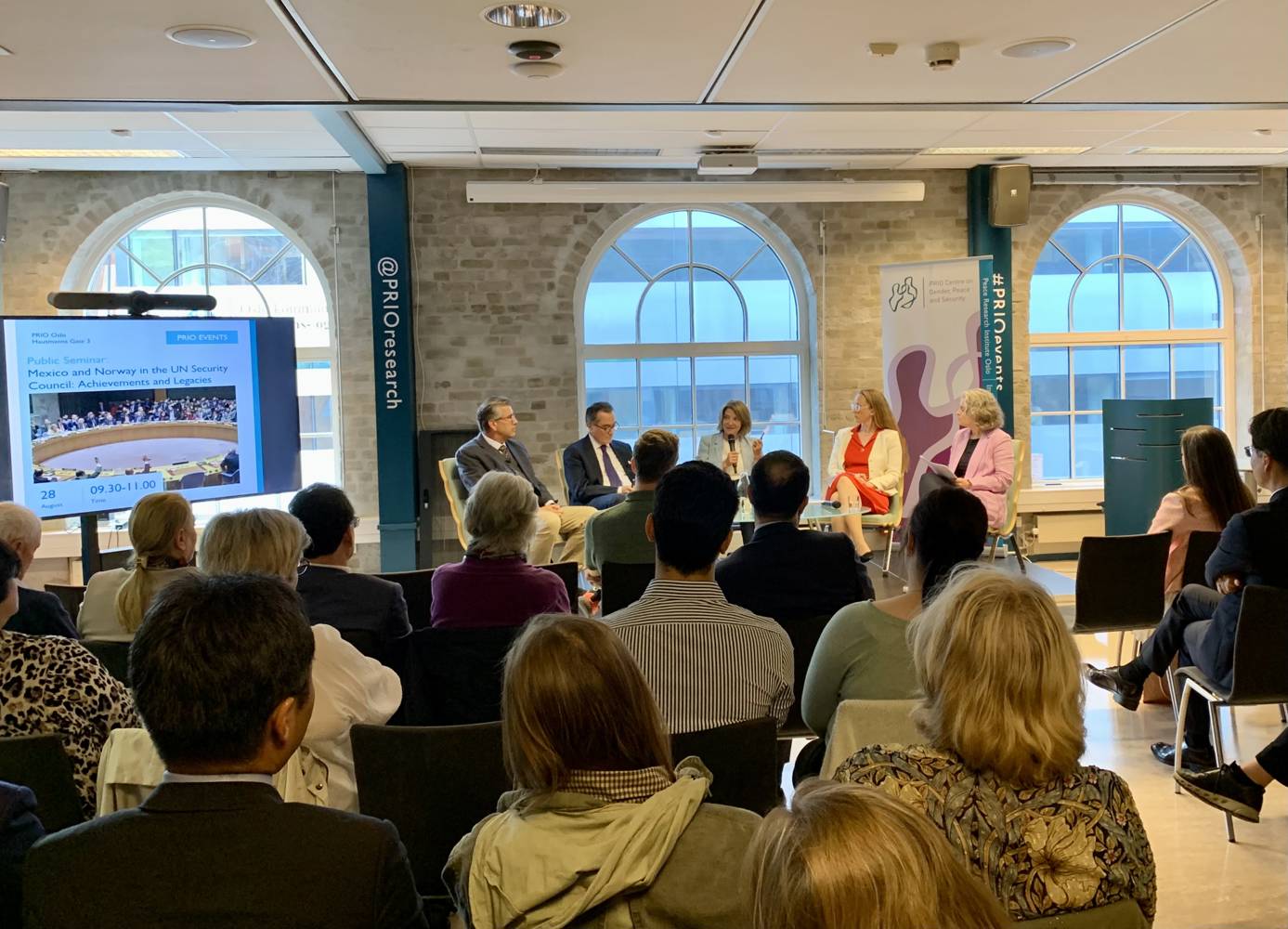
What experiences have Norway and Mexico had in the United Nations Security Council (UNSC) and what are their historical legacies? What challenges did these countries meet and what opportunities did they have when advancing various initiatives? In this seminar distinguished ambassadors Ulises Canchola (Mexico) and Mona Juul (Norway) were invited to discuss Mexico’s and Norway’s tenure as non-permanent members of the UNSC for the period 2021-2022. In a panel of experts they discussed historical legacies of the two countries as well as their ability to influence the UNSC, together with PRIO Research Director Louise Olsson and NUPI Research Professor Cedric de Coning. PRIO Deputy Director and Director of the PRIO Gender, Peace and Security, Torunn L. Tryggestad, chaired the discussion. PRIO Director Henrik Urdal welcomed the seminar. Both ambassadors highlighted how recent developments in the world affected the work Mexico and Norway were doing in the UNSC. Both the pandemic and the war in Ukraine have contributed to a challenging environment for diplomacy and negotiations. “Diplomacy and the pandemic is a contradiction in terms. You can’t carry out diplomacy if you can’t meet with people” ambassador Mona Juul claimed in her keynote. Ambassador Ulises Canchola followed up by addressing the fact that Norway and Mexico have been non-elected members of the UNSC during challenging times in recent history. The first time in the 1980s during the Cold War, the second time in 2002, in a post-9/11 period and the third time in 2021-2022, a time of which is yet difficult to describe. "When speaking of challenges encountered, one must be aware of the context in which we are in", Canchola claimed. Louise Olsson presented findings from her research on the role and impacts of the UNSC and highlighted that the council should be described as a working horse, not an unicorn, as its contribution is to be found in its day-to-day negotiations. Cedric de Coning also presented his work on climate, peace and security and mentioned how Norway, together with Kenya, managed to shift the narrative of climate and conflict to entail a much broader perspective and a solution-oriented approach. This has been an important legacy of relatively small countries within the UNSC. The presentations were followed by a panel discussion. The panelists discussed tensions and paralysis of the five permanent members of the council (P5) which may constitute window of opportunity for the elected members, both for pushing agendas forward at the UNSC and give a platform to present national interests. The panelists also highlighted the important role that these countries have served in promoting and advancing the Women, Peace and Security (WPS) agenda, which hopefully will continue to be a focal point among the members of the UNSC.
The seminar was co-organised by the Mexican Embassy, Oslo and the PRIO GPS Centre. recording of the event can be found here.





